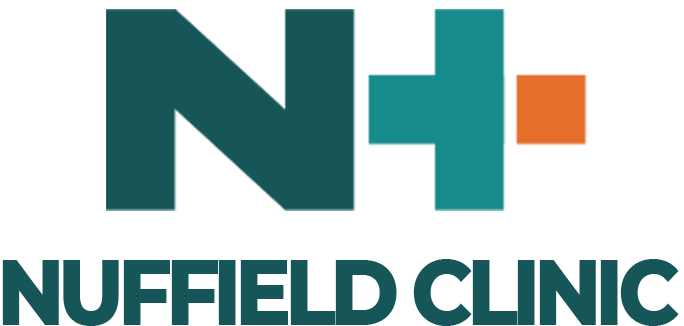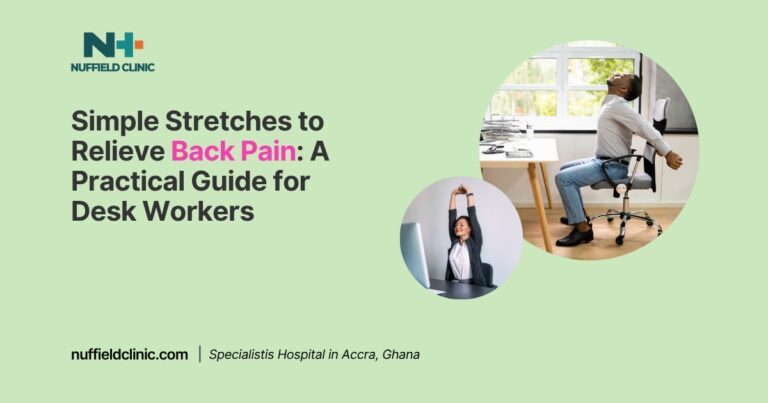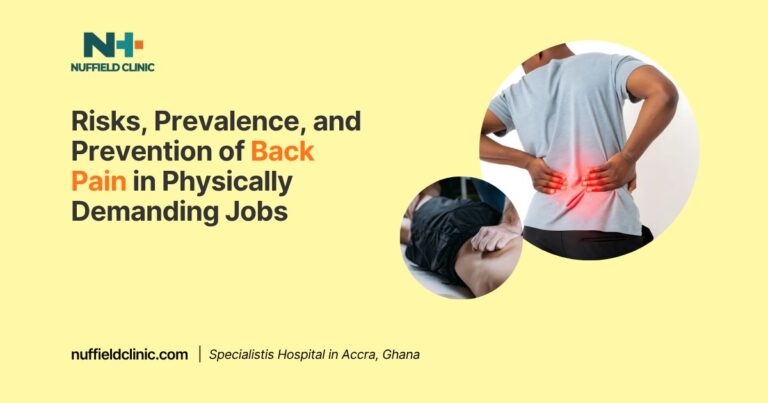Dear HR Managers, Employees’ health must be your top priority, fight for it- Nuffield Clinic urges HRs.

In today’s fast-paced work environment, where employees spend most of their waking hours on the job, one truth stands out clearly: a healthy workforce is the foundation of productivity. This was the message championed by Commander Dr. J.E.K. Aggrey-Orleans, Orthopaedic and Trauma Surgeon at Nuffield Clinic, when he addressed Certified HR Practitioners at the Sip and Gist event organized by the HR Certification Centre (HRCC).
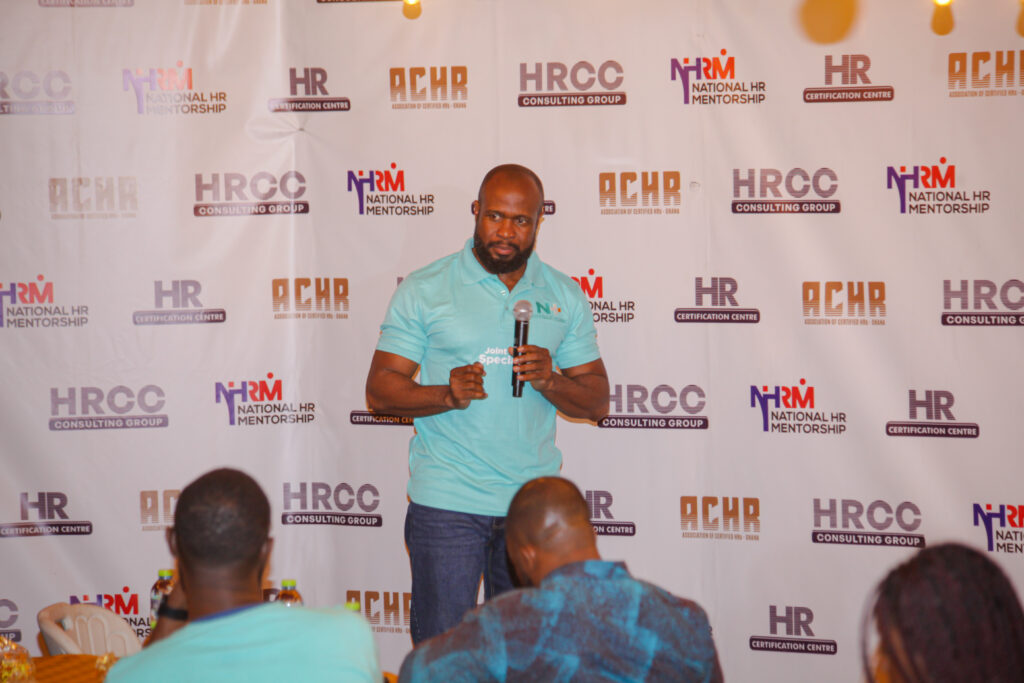
The session was held as part of Nuffield Clinic’s Back Pain and Work-Related Injuries Awareness Campaign. In this nationwide initiative, Nuffield Clinic’s specialists visit workplaces across industries such as Corporate, Agricultural, Mining, Construction, Trade, and Health Care to educate HR leaders and employees on how to prevent back pain, reduce injuries, and create healthier workspaces.
Speaking directly to Certified HR Practitioners, Cdr. Dr. J.E.K. Aggrey-Orleans stressed that HR’s role goes far beyond recruitment and administration. HR managers are custodians of employee well-being. “If you fail to prioritize staff health, you risk increased absenteeism, lower morale, and reduced productivity. But if you fight for it, you will build a stronger, healthier, and more productive workforce,” he said.

He explained the 5 Levels of Health Care Every HR Should Know
Dr. Orleans outlined a structured framework that can guide HR teams in building health-conscious organizations:
- Promotive Care – Awareness campaigns, wellness challenges, ergonomic interventions, and mental health programs.
- Preventive Care – Screenings, occupational health checks, and safety policies that stop risks before they develop.
- Curative Care – Fast, effective access to health services, including consultations, diagnostic testing, and treatment.
- Rehabilitative Care – Helping employees recover fully through physiotherapy, occupational therapy, and structured return-to-work support.
- Palliative Care – Offering compassion, counseling, and flexible work arrangements for employees facing chronic or long-term conditions.
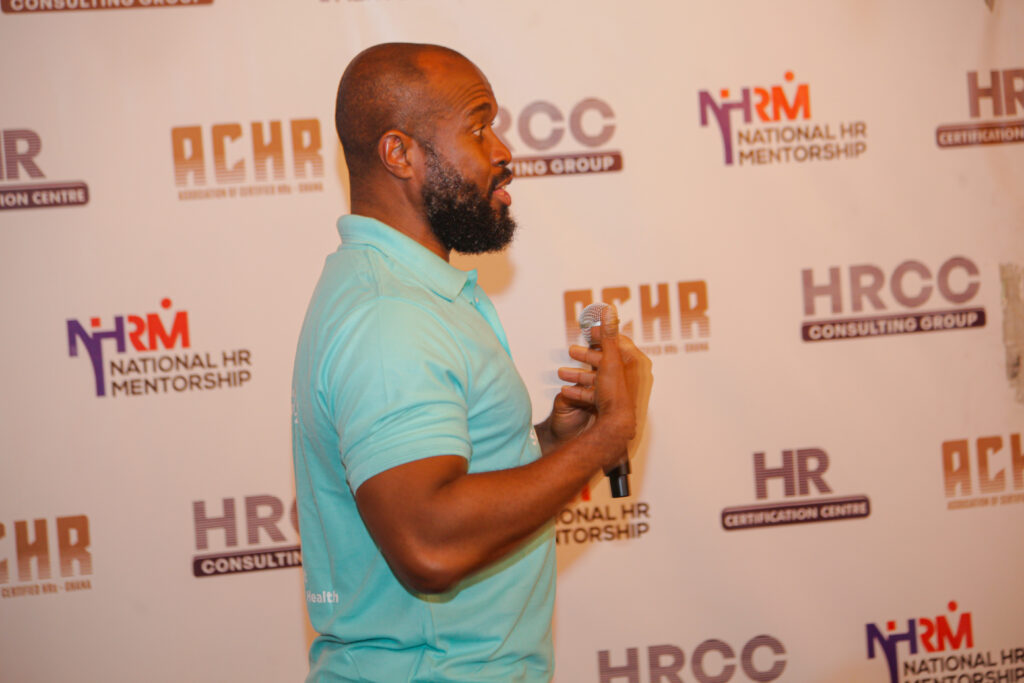
Practical Approaches for Employees
To complement HR’s role, Cdr Dr. Aggrey-Orleans advised that workers themselves adopt three key behaviors:
- Early Reporting – Speak up as soon as symptoms appear.
- Stepwise Health Care – Follow the process: check-up, diagnosis, treatment, and recovery.
- Return-to-Work Support – Accept and utilize modified duties or flexible arrangements during recovery.

Control Measures That Work for HRs
He also shared three critical workplace interventions:
- Engineering Controls – HRs adjusting the environment with safer layouts, ergonomic furniture, and proper lighting.
- Administrative Controls – Set policies that enforce rest breaks, staff rotation, or remote work.
- Training & Retraining – Teaching safe practices and adapting roles to workers’ health conditions.

This is to remind HR leaders of the powerful impact they can make. Health at work is not a luxury, it is an investment. When organizations champion wellness, they reduce absenteeism, protect their workforce, and ultimately perform better.
Through Nuffield Clinic’s Back Pain and Work-Related Injuries Awareness Campaign, the Clinic continues to lead the way in workplace health advocacy. With expertise in Orthopaedics, Rheumatology, and Physiotherapy, the clinic is helping companies across Ghana protect the health of their most valuable resource- their people.
Nuffield Clinic is proving that when staff well-being becomes a priority, productivity is not just possible, it is inevitable.
For HR professionals, the message is clear, employee health is not optional. It must be your top priority. Fight for it.
